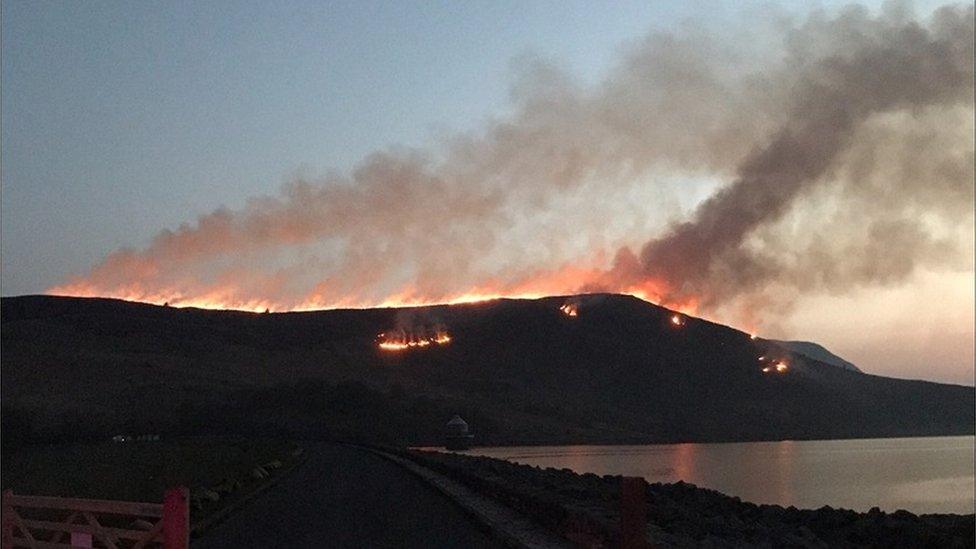Heatwave: Water levels monitored by Wales Drought Liaison group
- Published
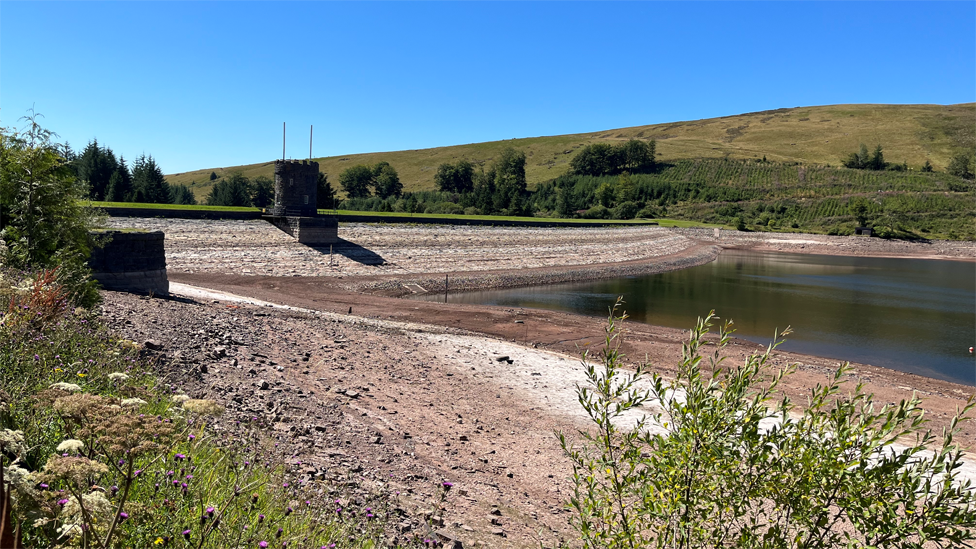
Low water levels at a Brecon Beacons reservoir on Thursday
A group of Welsh experts has been brought back together to monitor the impact of the heatwave on water levels.
The Wales Drought Liaison group, including environment, health and water professionals, is looking at the effect of the prolonged dry weather.
The group will announce any state of drought if Wales' own triggers are reached, which is not dependent on any developments in England.
A Met Office amber alert for extreme heat covers lasts until Sunday.
Meanwhile, Natural Resources Wales (NRW) and Welsh government will also meet their UK counterparts on Friday to discuss cross-border issues.
"We continue to encourage everyone to stay safe and hydrated in this hot weather whilst being mindful of the steps we can all take to reduce the amount of water that's wasted," said a Welsh government spokesperson.
Accidental fires
With reservoirs low because of the hot weather, South Wales Fire and Rescue said there could "potentially be an issue" with using their helicopter.
Accidental fires can also start from discarded cigarettes and campfires, it said.
Homeowners have been warned that now is "not the right time" to burn garden waste, with firefighters facing up to tackling blazes with fewer resources.
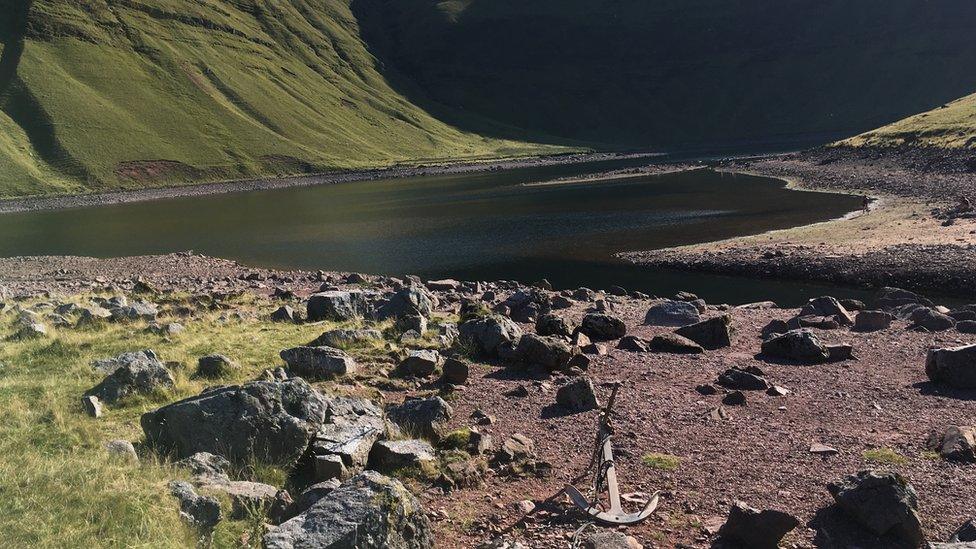
This is how Llyn y Fan Fach lake in the Brecon Beacons looks in August 2022...
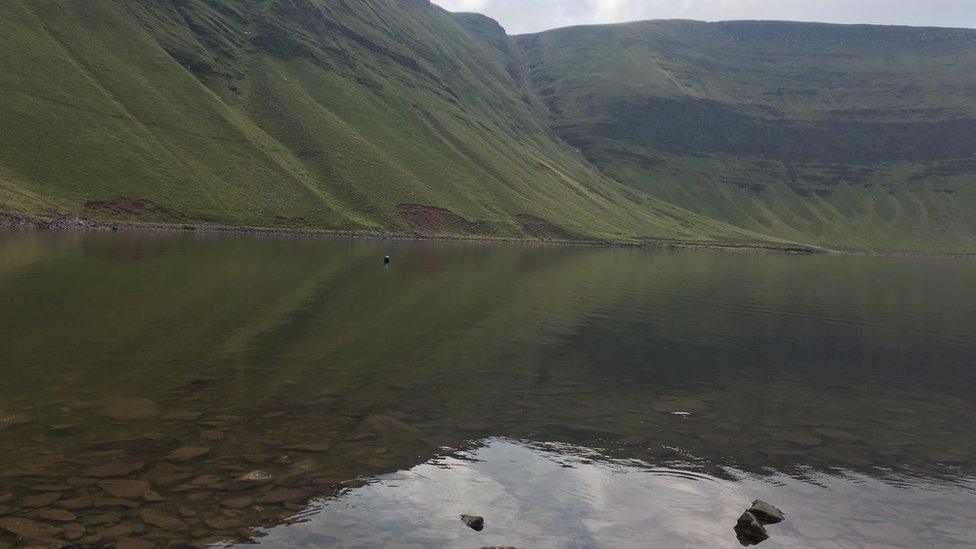
... and this is how Llyn y Fan Fach looked in August 2020
"We're coping," said Huw Morse, group manager at the fire service. "We are expecting an increase [in fires] as we do with the weather conditions as they are being so dry."
"But this is unusual because it's been so dry for so long and everything is getting very what we call tinder dry and it's just much easier to ignite then with a naked flame".
While there is no issue with supplies of water for fire engines, he added: "Where we potentially have a risk is the reservoirs, rivers and ponds being so dry, if we need to call the helicopter in, then filling the bucket for that could potentially be an issue.
"Unfortunately we're still in that era where the majority [of grassfires] are deliberate.
"But at this time of year there are several accidental fires that can be caused by discarded cigarettes and campfires".
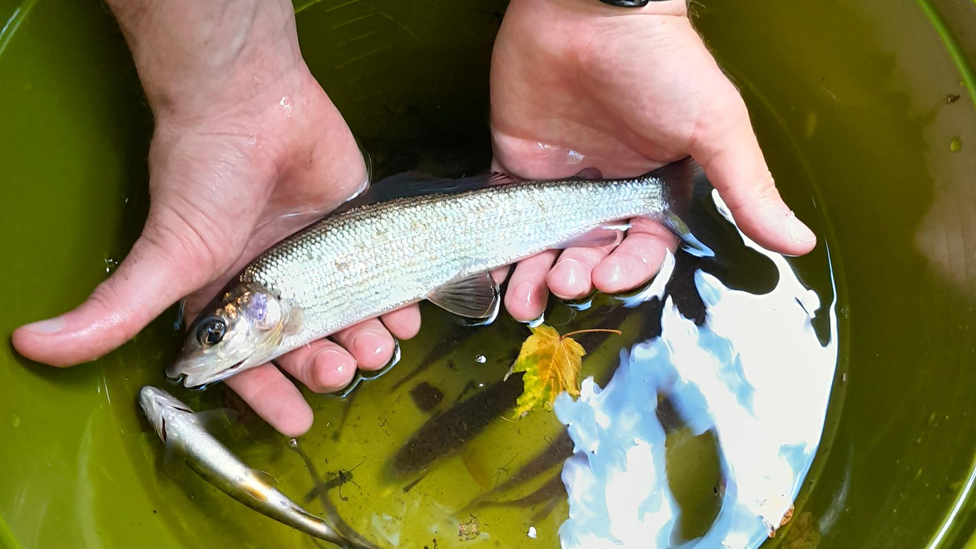
More than 600 fish were moved from the Ewenny
Fish rescued after river levels drop
Meanwhile, hundreds of fish were rescued after river levels dropped significantly in a stretch of the Ewenny near Pencoed.
A sinkhole has been blamed, which left 600 fish trapped in isolated pools of water with no means of escape.
With so many fish packed into such a small area, Natural Resources Wales (NRW) said they were in danger of running out of oxygen.
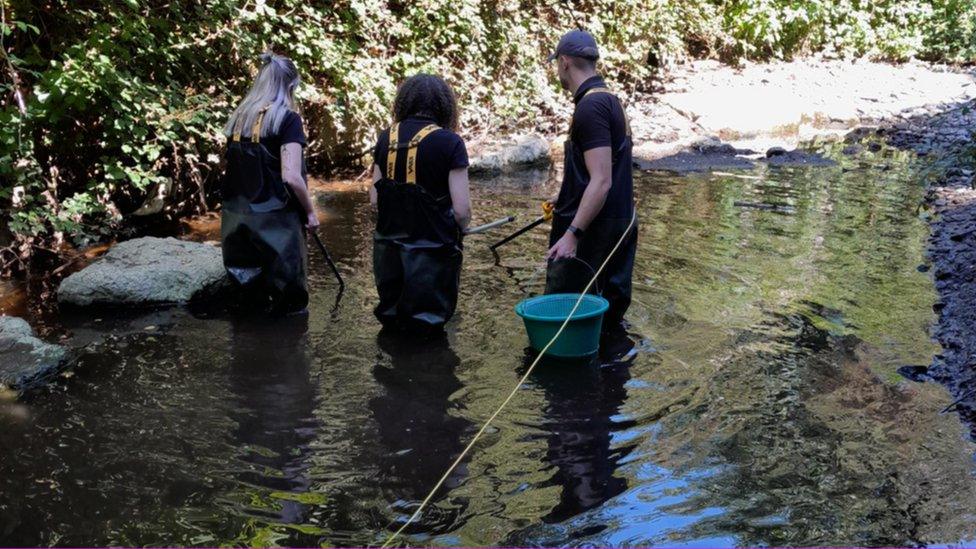
The fish rescued were mainly small, such as minnows, stone loach and bullhead, but also included brown trout and grayling
Andy Robinson of NRW said: "Fish rescues are usually only carried out in exceptional circumstances, such as large pollution incidents as the process can cause fish more stress.
"Given the obvious impacts of the sinkhole, exacerbated by the continuing hot weather conditions and low water levels, the decision was taken to carry out a fish rescue in this instance."
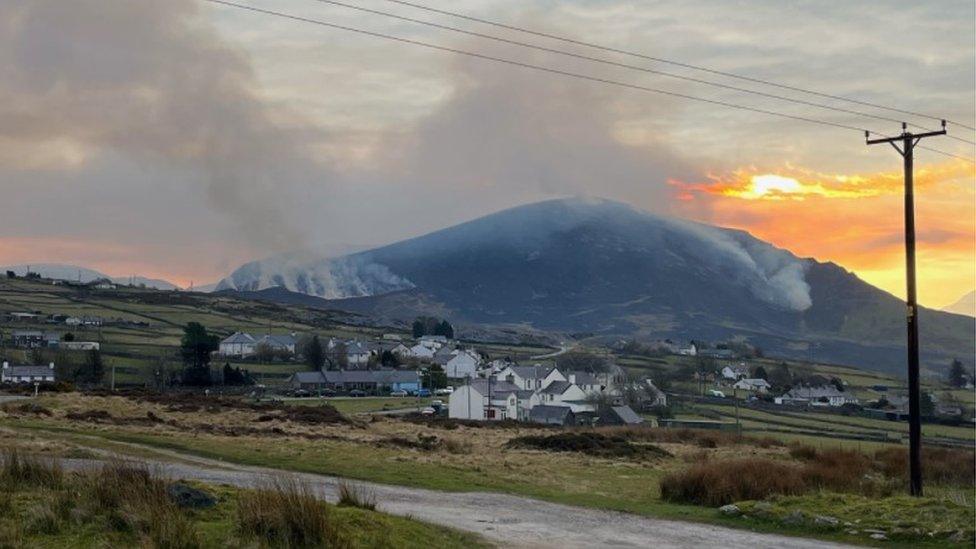
A fire at Mynydd Mawr, near Y Fron village in Gwynedd, covered an area of 100,000 sq m at one point earlier this year

TANNI'S LIFETIME ROAD TO RECOVERY: Tanni Grey-Thompson reflects on key moments in her life
RESCUING DAD: Dai Chant returns to the sea after 30 years

'Disastrous'
In another heatwave-related move, Wales' three national parks - Brecon Beacons, Pembrokeshire Coast and Snowdonia - have urged visitors to avoid disposable barbecues.
Judith Harvey, warden manager at Brecon Beacons National Park Authority, asked people to bring a picnic instead.
"Disposable barbecues pose an everyday risk to the natural landscapes and wildlife in Wales' national parks, but the current tinder-dry conditions of our mountain ranges and woodlands make outdoor cooking apparatus even more dangerous," she added.
Pembrokeshire Coast National Park ranger Richard Vaughan described the "driest year since 1976" as leaving west Wales facing "near-drought conditions".
"Paired with an improperly disposed throwaway barbecue, could prove disastrous in rural areas," he added.
A hosepipe ban, covering Pembrokeshire and a small part of Carmarthenshire, starts on Friday, 19 August as Welsh Water is under pressure to maintain supplies after low rainfall.
Related topics
- Published11 August 2022
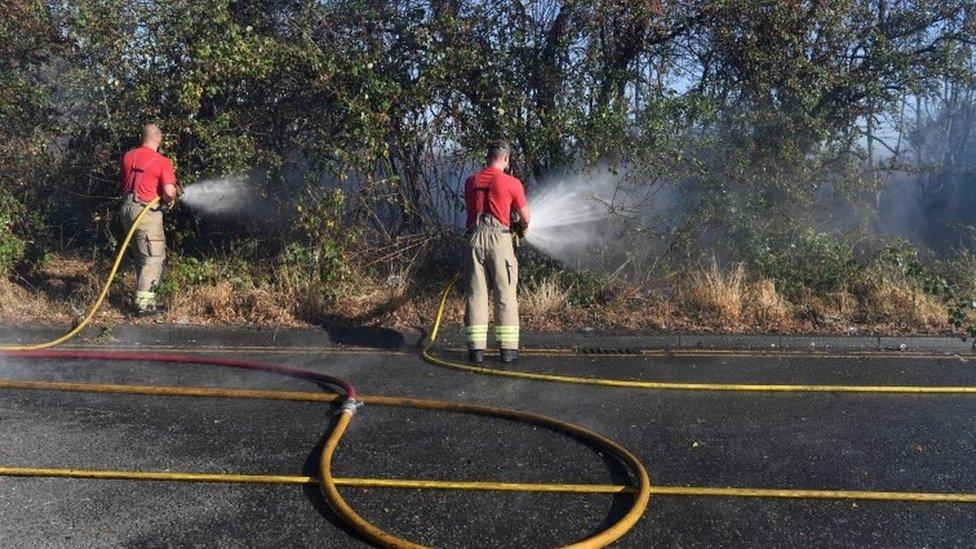
- Published11 August 2022
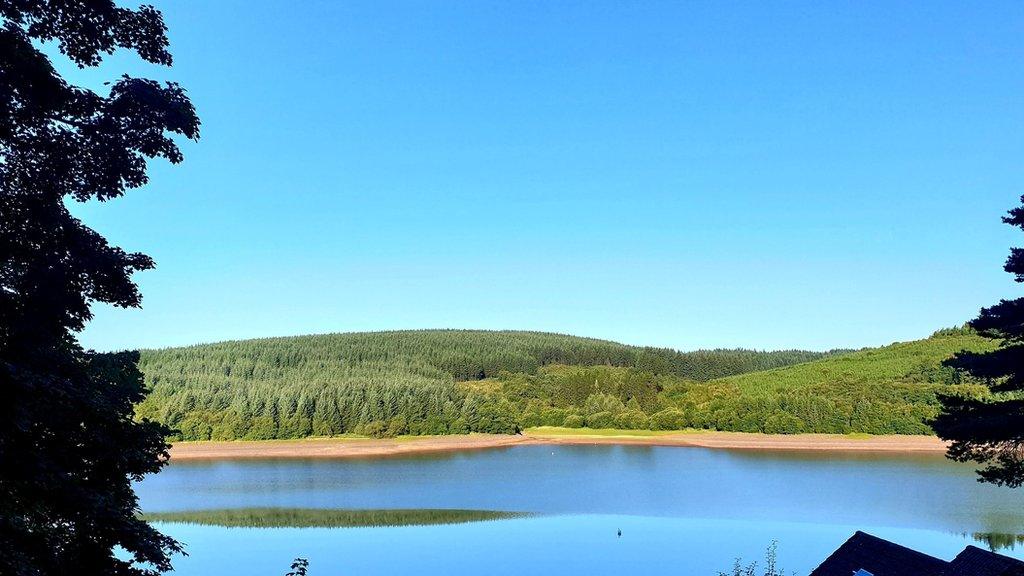
- Published4 August 2022
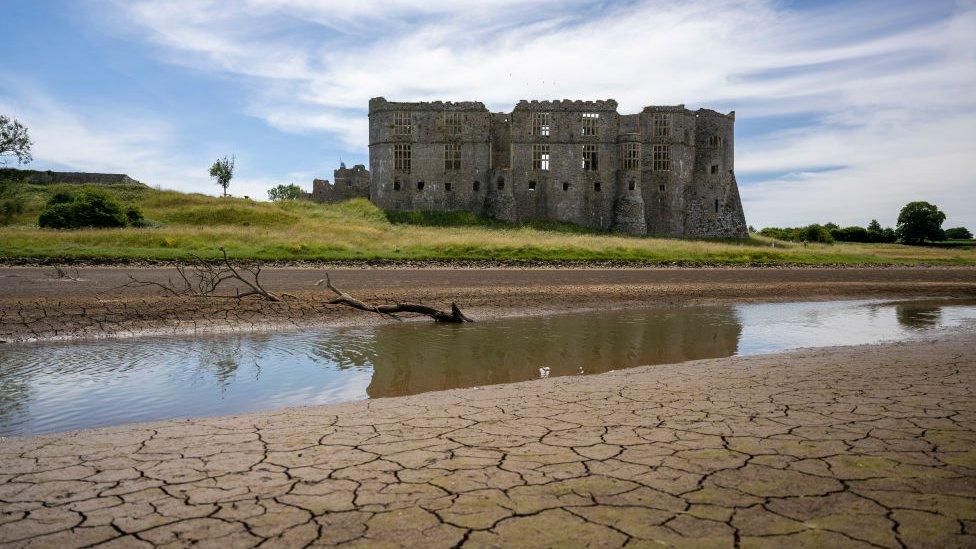
- Published26 March 2022
